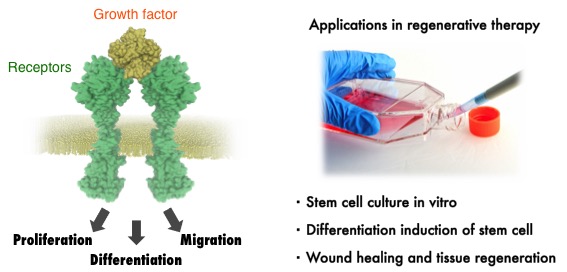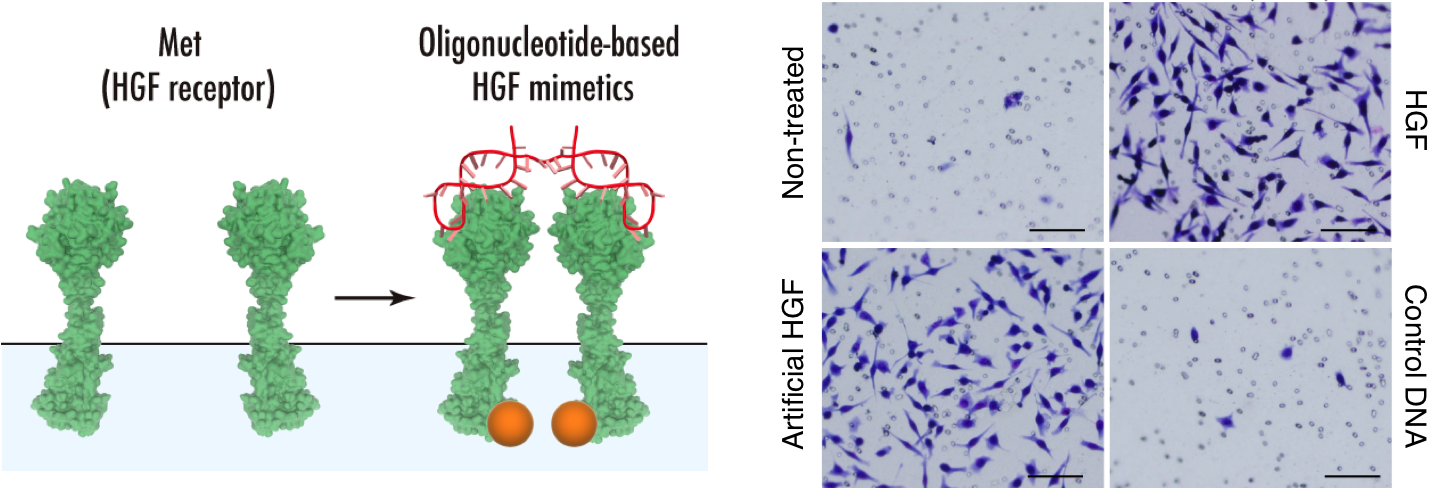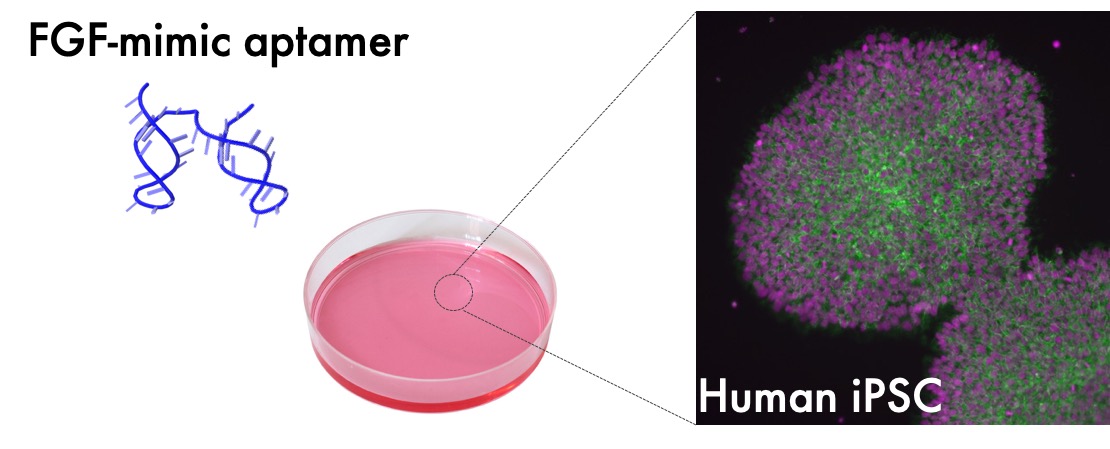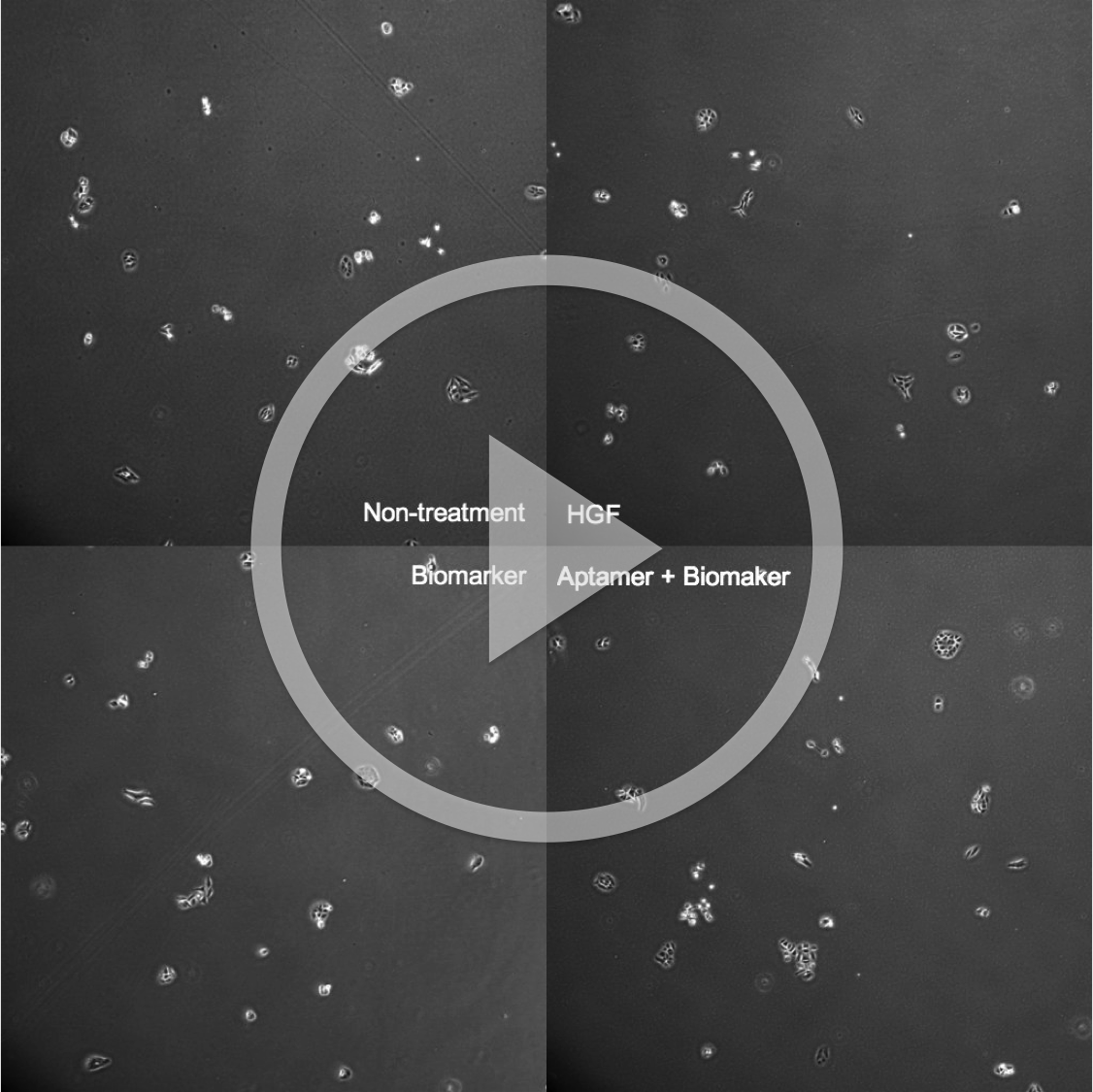Project 2. Development of synthetic growth factors for regulation of cellular functions and differenciation.
Growth factors play a pivotal role in fundamental cellular processes such as maturation, proliferation, and differentiation. Recently we have engaged in synthetic growth factor that can control activity and fate of the cells. The synthetic materials would be good replacement of natural growth factor in terms of production cost, quality control and chemical stability. We are trying to develop a new molecular strategy that would contribute to regenerative therapy and cell engineering.

HGF (Hepatocyte growth factor) is protein that promotes the proliferation and differentiation of cells. HGF has been applied to the treatment of various diseases and induction of the differentiation of stem cells into functional hepatocyte cells. In this paper, we developed a functional mimic of HGF based on DNA aptamer that binds to HGF receptor (Met). This aptamer could reproduce biological activities of natural HGF, such as induction of cell migration and cell proliferation.
Basic fibroblast growth factor (bFGF) has been widely used as a supplement for culture media for human ES cells or iPS cells. However, low thermal stblitity of bFGF has been recognized as a problem to maintain the activity for a long term in the culture environment. In this paper, we successfully developed a DNA aptamer that can activate the FGF receptor. This artificial FGF aptamer has been shown to be applicable to the maintenance of iPS cells when added in place of bFGF in a commercially available iPS cell culture medium.
Growth factor signaling represents promising targets in regenerative therapy as it regulates cell proliferation, migration, and differentiation. Conversely, aberrant signaling has been implicated in cancer development. Therefore, regenerative therapy based on a growth factor has been recognized as double-edged sword. In this paper, we proposed the design of oligonucleotide-based synthetic switches that feature the ability to trigger growth factor signaling depending on a user-defined external cue. For example, we designed synthetic switch that can induce cell migration depending on a biomarker that otherwise does work as activator for cell migration. This synthetic switch would represent a platform for designing smart and safer therapeutics that would function only where needed.





